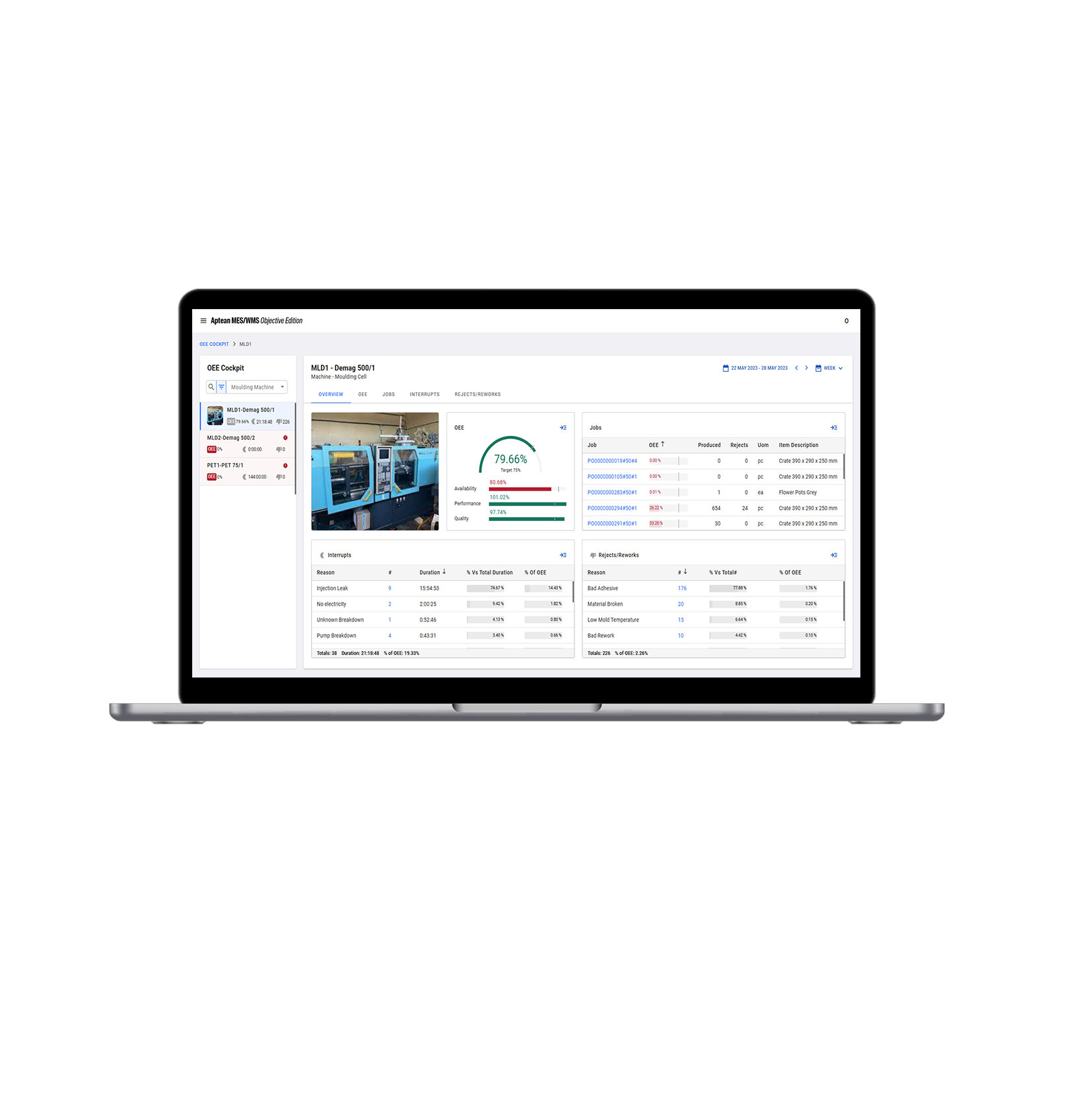Why Is An ERP Critical for Discrete Manufacturers?
Why Is An ERP Critical for Discrete Manufacturers?
Why Is An ERP Critical for Discrete Manufacturers?

As more and more discrete manufacturers reform their business practices to keep up with the role technology plays in our lives, it may be time to consider your enterprise’s best practices. If you’re still running on Excel spreadsheets and disparate systems that are clunky and struggle to talk to each other, you run the risk of being outdated.
An enterprise resource planning (ERP) solution, however, can help you eliminate that risk. Not only does it make communication easier and organize all your information into a single source of truth, but it can also help enhance visibility into job costs and profits, manage material resources more efficiently, improve on-time delivery rates, and increase production profitability.
Enhance visibility into job costs and profits
Moving away from a manual, paper-based system to a centralized and fully paperless ERP solution can provide you with the visibility you need into job costs and profits. The right ERP will be able to automate tedious job-related tasks, making your processes more efficient and helping to reduce costs.
Additionally, an ERP that gives you the ability to view job costing information—including accumulated job order costs—as soon as labor is recorded or material has been issued is invaluable. The ability to compare accumulated cost to the estimated job order and the estimated sales order cost helps you to better monitor your production facility.
For example, you can set a flag so your ERP system can automatically complete job orders when the total required quantity has been completed, and then it can place stock-manufactured components into the job order queue when they have fallen below the safety stock level. This kind of visibility into actual (not estimated) job costs helps you better understand your bottom line—and to make adjustments if necessary.
Manage material resources more efficiently
What if you could accurately forecast demand to ensure the sufficient supply of components? Since customer expectations, vendor delivery dates, and lengthy production schedules can exceed your necessary lead times, you have to anticipate demand and take proactive steps to allocate capacity, purchase materials, and manage your inventory. The reality is that you need to build product and/or bill of material-level parts ahead of incoming demand.
Making the right decisions on what to order and build requires a good forecast. Many small and midsize manufacturers rely on historical performance and trends to make future demand assumptions. However, storing, analyzing and reporting meaningful data can be complex and time-consuming, so key decisions are often made based on gut instinct instead.
The right ERP solution can quickly perform forecasting analysis using historical data and predict, with confidence, demand components when it comes to suppliers, customers, channels and regions to better ensure you have enough inventory to meet demand.
Improve on-time delivery rates
You want to meet your targeted delivery dates. That much is clear. But between everything else that you have to worry about in your facility, that could be one thing that falls short just a little too often. A tool that can help you with your scheduling and planning is critical.
To help you build the right jobs at the right time, you need to be able to quickly schedule and sequence all the activities in your work centers so that you can meet your delivery dates. Not only are strong on-time delivery rates good practice, but it helps you to improve your customer service levels, keep your customers happy and retain them for future business opportunities.
Increase production profitability
Your data is only good if you use it, and it’s even better if you can use it effectively. This may sound obvious, but discrete manufacturers understand how valuable this point is. It can feel impossible to take a seemingly infinite amount of information and translate it into something that’s going to help with profitability.
The more information you have from which to work, the more effective your scheduling and planning can be, which, at the end of the day, makes your business more profitable. It all goes back to your data. When you have all of your data consolidated into your ERP, including key inventory and forecasting data, your software should be able to consider non-nettable inventory conditions so you can create more precise production schedules.
Aptean Made2Manage ERP Optimizes What Your Business Can Do
Made2Manage ERP delivers tailored functionality and industry-focused software for discrete manufacturers. This ERP provides sophisticated planning and scheduling tools that empower users to create more accurate and dependable plans, efficiently incorporate job schedules into enterprise operations, monitor execution, and respond quickly to unplanned events.
Interested in talking more about how Made2Manage ERP can serve your discrete manufacturing business? Reach out, we’d love to chat.
Start Transforming Your Business Today
If you’re ready to take your discrete and industrial manufacturing business to the next level, we’d love to help.



 Andy Pickard | Senior Solutions Consultant, Sales
Andy Pickard | Senior Solutions Consultant, Sales